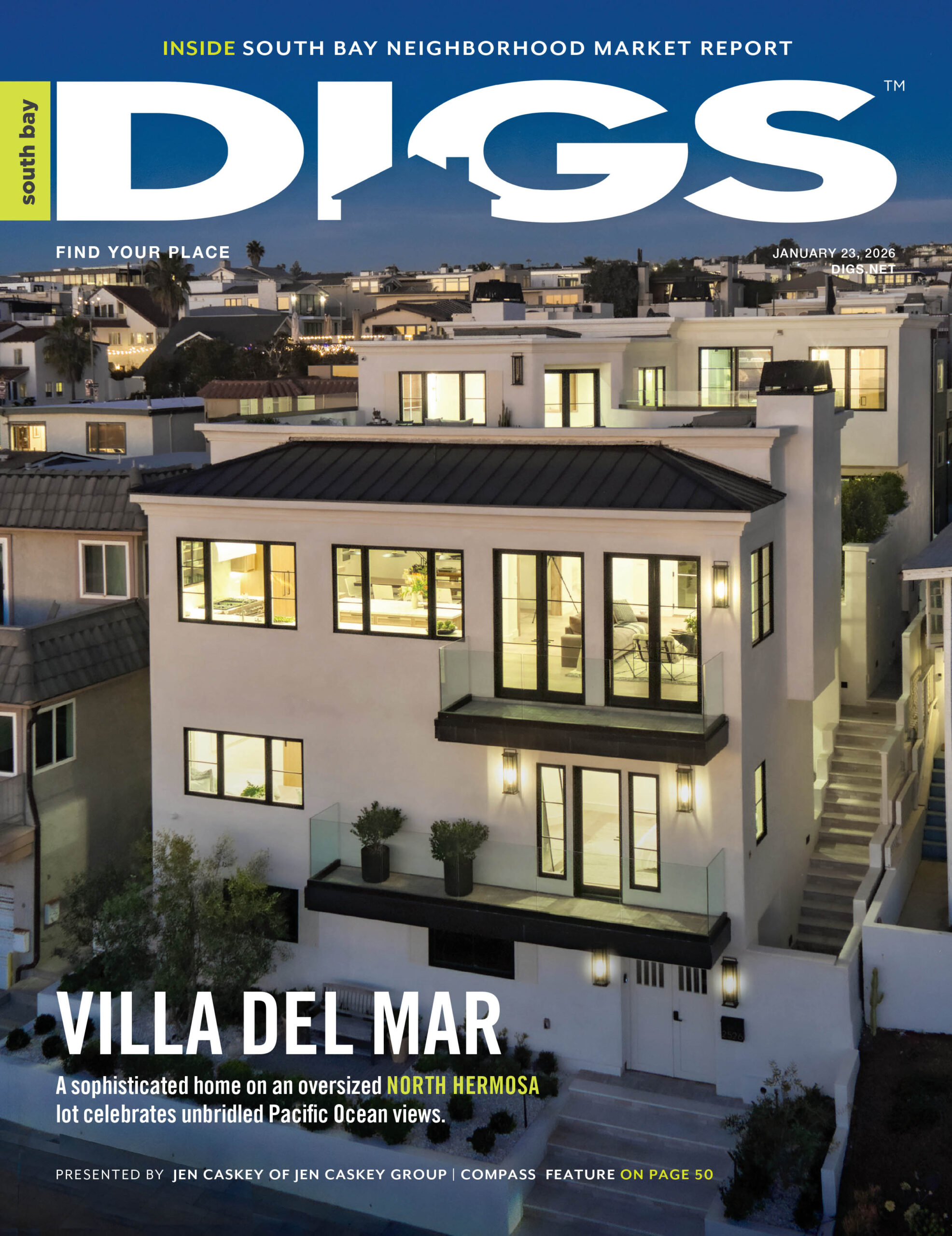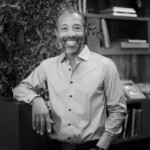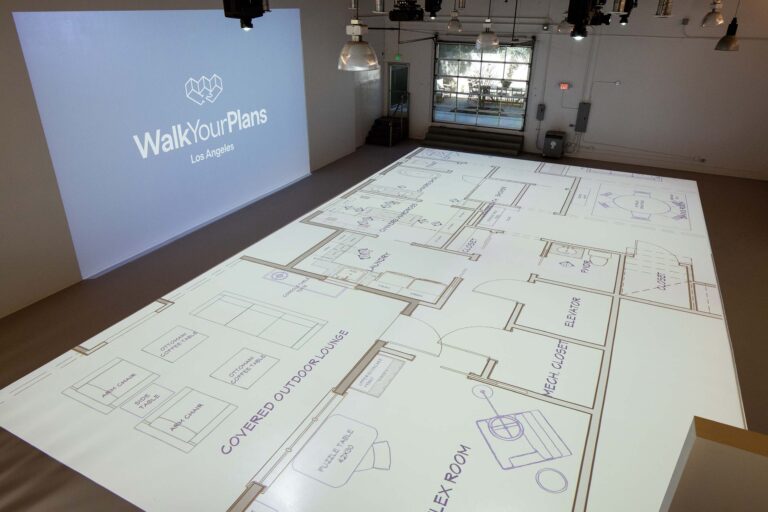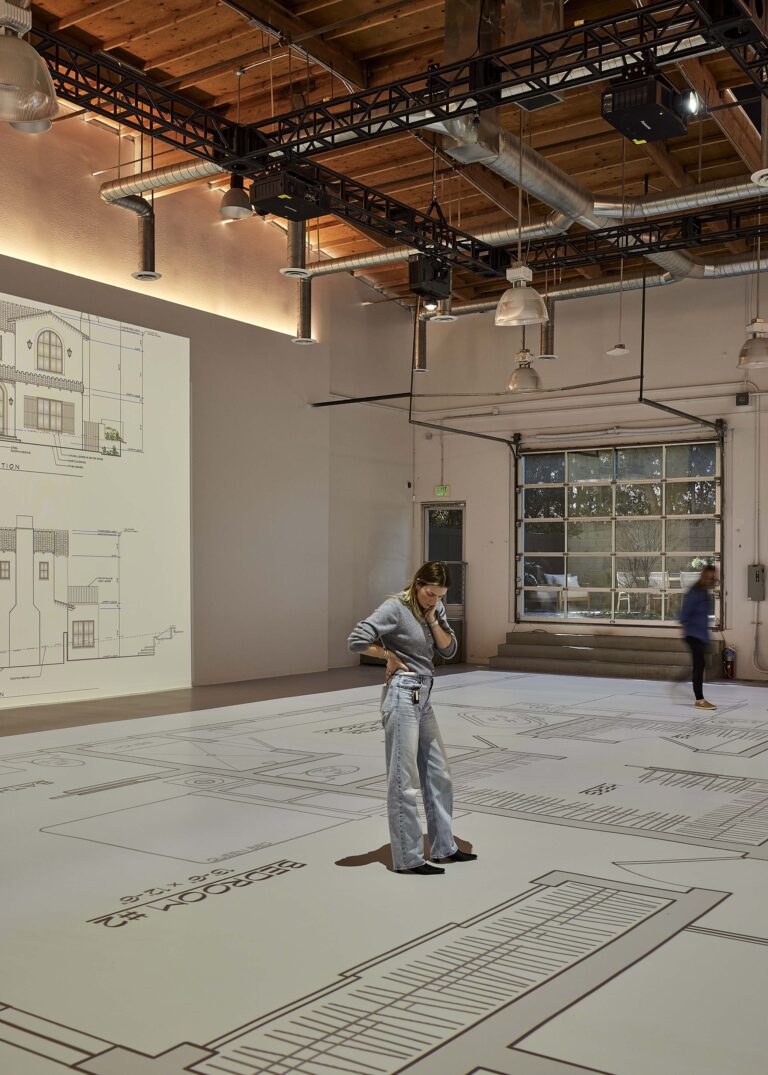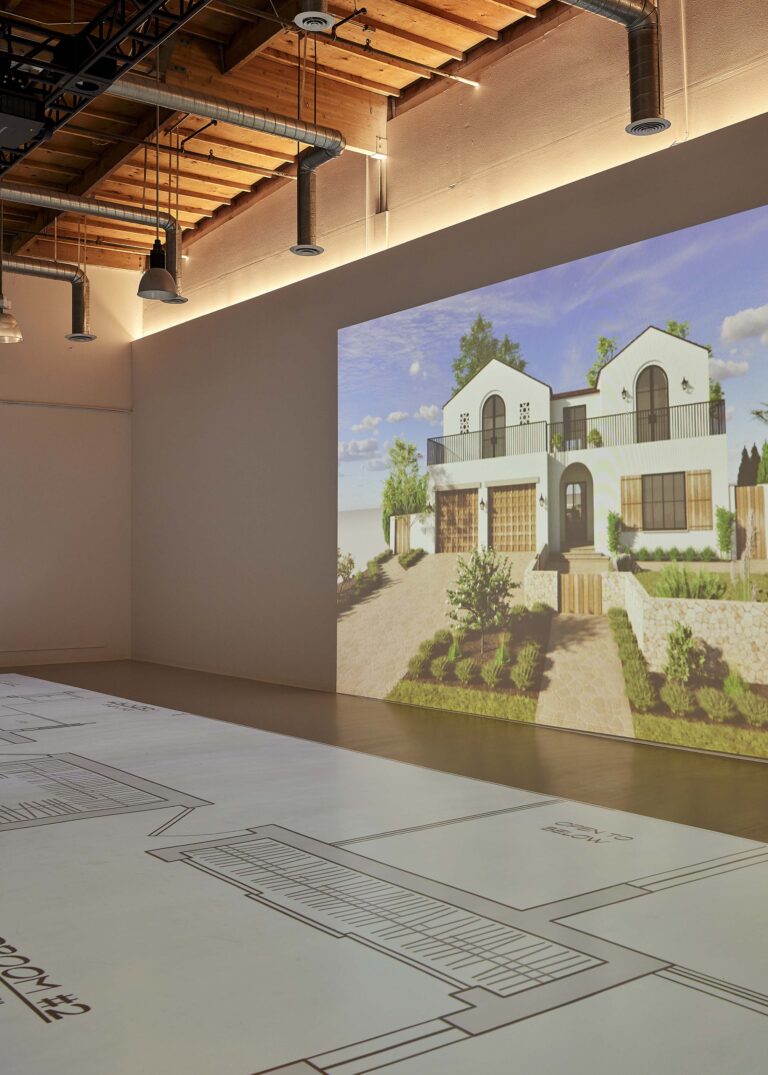Table of Contents
In This Episode
The Altamura Real Estate Group trio, John Altamura, Vince Altamura, and Gio Altamura continues to run a wildly successful real estate boutique brokerage based in Manhattan Beach right along Manhattan Beach Boulevard near the Pier and has worked hard to earn their status as one of the most respected and trusted names in the community. You’re going to love this episode – please share and give us a review!
Top Quotes
“…My knowledge is my only source of income, and I really believe that, you know, in a business where you’re a salesperson, no matter what business is—selling cars, you know, selling houses—doesn’t make any difference.”
Tweet
“Well, who’s the framer? You know, who’s the builder? Who did a plumbing? You know, you have to know all these things and you’re selling something. And it’s shocking how many people don’t, I mean, real estate that don’t, and it’s like any other sales business.”
Tweet
“The Strand is definitely such a unique animal. It’s like sitting on a floor seat at a Laker game. Okay, it really is. It’s like sitting on a floor seat where you see things and you hear things that you don’t think happen…”
Tweet
Episode Resources
Follow the Altamuras
Watch Vince and Gio Altamura Answer Googles Most Commonly Asked Questions on the Internet About Real Estate
Full Episode Transcript
John Altamura: [00:00:00] my first year of teaching, I went back to New Jersey. Like I said before, all my friends were truck drivers, longshoremen, blue-collar workers, and I told them, I said, I am making so much money. I can’t spend it all. This is December 1960. Six that’s how much you make. And I went, I’m clearing a hundred a week now in Manhattan beach.
[00:00:29] I had a three-bedroom house, two blocks from the ocean with an ocean view with two roommates, total rent, $150 [00:00:46] Warren Dow: [00:00:46] Welcome to DIGS Influencer Podcast, the Titans of Real Estate. The show that provides direct access to the real estate industry’s top movers and shakers as they share invaluable insight on how to best navigate and succeed in any market. I’m your host, Warren Dow, founder and CEO of m3 media and publisher of DIGS magazine. [00:01:09] In this episode, John, Vince, and Gio, better known in the South Bay as the ultimate real estate group. Thank you to our show sponsor bow concept. Today we welcome to the DIGS Influencer Podcast, a South Bay real estate institution and powerhouse team and family, John, Vince, and Gio, better known in the South Bay as the ultimate real estate group. [00:01:35] Welcome to the show. [00:01:37] Giovanni Altamura: [00:01:37] Thanks for having us. Thanks Warren. [00:01:39] Warren Dow: [00:01:39] So since there’s four of us on audio, why don’t we start by with you guys introducing yourself to our listeners. Individually, so they have a sense of who you are and what you sound like. [00:01:48] Giovanni Altamura: [00:01:48] Okay. My name is Gio Altamura. [00:01:50] Vince Altamura: [00:01:50] This is his younger brother, Vince Altamura. [00:01:53] John Altamura: [00:01:53] And this is the dad John Altamura. [00:01:55] Warren Dow: [00:01:55] Alright, so what a great story this is. And John, we have to start with you. Of course. First-generation Italian from Jersey. [00:02:03] John Altamura: [00:02:03] Tell us. [00:02:04] Warren Dow: [00:02:04] Okay, so tell us about your family growing up. We want to hear it. [00:02:08] John Altamura: [00:02:08] My dad was a European immigrant from Italy, came to America in 1919 when he was 17 years old. [00:02:15] I’m the youngest of five. I had two brothers and two sisters. My mom was born in Hell’s Kitchen, New York. Her mom and dad were born in Naples. I grew up in Hoboken, New Jersey, which when I grew up was a very tough waterfront town, a mile square, 62,000 people. 240 bars, and I’ll tell you what, yeah, it was, it was a great childhood, great place to live. [00:02:43] It was fun. Predominantly Italian, very, very ethnic, Italian, black, Puerto Rican, Irish, some German, some Jewish, but it was very, very ethnic. But it was a type of town where everyone, everyone knew each other. And you knew. What to do, what not to do. There were rules and, and most people abided by those rules. [00:03:07] I then went to the University of Oklahoma and Northwestern State University while I played basketball, went back to UO and got my masters, moved out to California, 1967 taught school. I was a phys ed teacher and a basketball coach at Hoover high school. And Glendale and discovered Manhattan Beach in 1967 and move here in 1967 so I’ve lived continuously in Manhattan for, well, I lived a few years in Hermosa, but for 52 years, predominantly in Manhattan Beach [00:03:46] Warren Dow: [00:03:46] or as, let’s go back though to, let’s go back to Jersey. [00:03:48] John, come on. Give us some stories that when you were young, what kind of trouble did you get into. [00:03:52] John Altamura: [00:03:52] Well, you gotta remember in the 50’s—I was born in 1943—so in the 50s when I was in school, the Hoboken waterfront was, well, it was a movie on the waterfront, and that was with Marlon Brando, and that was filmed in Hoboken and that we used to go there and watch it actually from school, just cut school, go over there. [00:04:14] I was school Demarest high school, one building. No play area, no outside area, one gym. It’s totally different than what you have now and any of the schools. The waterfront was very tough. I had two older brothers and uh, I was not allowed. To go to the waterfront until I was at least a sophomore, junior in high school because it was that tough every, every night there was something. [00:04:40] It was all bars, army, Navy, surplus stores, hoc shops, you know, a lot of Navy guys and a lot of shipyards and. It was just an area where, you know, she just didn’t go there. Our high school, Deborah’s high school, like I said, one building, our basketball gym had no, underneath the basket, you couldn’t drive underneath the basket. [00:05:01] You know, there was seats just on the side and then around the top. And very rarely did teams come to Hoboken and win. As a matter of fact, our arch-rival Saint Michael’s, we had a play them in the afternoon with only. The players, the refs and the cheerleaders. No fans were allowed because there was always riots breaking out, you know, is that, it was that kind of, it was that kind of environment. [00:05:24] I’ll tell you, it was a great place to grow up and that you had very strong family structures and there was no racial tensions, which was amazing. There was no racial tensions, and my best friend’s a Puerto Rican and African American, Irish. We just all got along and so that. That was what I really enjoyed and it was great fun. [00:05:47] It was great fun. [00:05:48] Warren Dow: [00:05:48] So what did you want to be when, when you grew up, what would you do when you were young? What would you think? [00:05:52] John Altamura: [00:05:52] I actually thought I could play baseball. I loved baseball, New York Giants fan. Then I thought that once I got to college and I realized, wow. I’ve just wasn’t big enough. Then I thought, you know, I’d love to stay in Oklahoma. [00:06:07] I really loved Oklahoma. It was, it was such a different change of pace from New Jersey. Totally different. People were friendly. Just to be friendly. You know, you just thinks you don’t think about it. See about, I’ll tell you a funny story. Everyone in New Jersey and Hoboken’s ethnic, so I would ask one of my friends at Oklahoma say, Hey, yeah. [00:06:25] What do you, he goes, well, what do you mean? He goes, well, where are you from? Well, I’m from Oklahoma. No, no. Well, where are your parents from? Well, we’ll Def from Kansas. Okay. Where are their parents from? Well, they’re from Arkansas, and it was like, no one was from out of the United States. Everyone was from the Southwest, and it took me a while to understand, wow, this. [00:06:45] There’s no ethnic people. Everybody was, they were white Anglo-Saxon Protestants, and it took a while to adjust to that, but it was the type of place where you can make friends easily. And I really enjoyed my time there. Very, very much so. [00:07:01] Warren Dow: [00:07:01] Very cool. So obviously you, you touched on how important. Family structure was. [00:07:07] It is. So let’s get in the family, Altamura family. So we have Gio and we have Vince and John. You’re married to wife Kathy and you guys have four children, right? [00:07:16] John Altamura: [00:07:16] Yes. My daughter Brianna, owns a clothing store in Manhattan Beach called Boulevard, and my youngest daughter lives in Florida. She played volleyball at, at MiraCosta and at USC and also went to a decode down blue school. [00:07:33] And now lives in Florida with a boyfriend and their family owns a Montessori preschool. [00:07:39] Warren Dow: [00:07:39] So SC runs in the family? Yes. [00:07:41] Vince Altamura: [00:07:41] It runs in the family. Well, actually, first-year foreign start, it was Ohio State and then he transferred to USC. [00:07:49] Giovanni Altamura: [00:07:49] Yeah. So I played volleyball in high school and a U and I had a few schools for scholarship offers, and I wanted to go to SC, but I wasn’t quote-unquote big enough. [00:08:03] Warren Dow: [00:08:03] So you got to give yourself more credit though. You were, were you a national champion [00:08:06] Giovanni Altamura: [00:08:06] in high school? Yeah, my team, junior year, it was national champion. Well an undefeated and senior year we won say F as well. We lost once in a tournament. So we were 58 and won, which was great. Hung two banners, which was nice. [00:08:21] So I went back to Fisher gym and saw that. And that was something cool. Cause I remember. Training when I was junior varsity and then as a sophomore on varsity, and you doing conditioning and all you’re doing is looking at the banners from all the past champions in all sports. And the goal was to always have your name up there. [00:08:40] You always want to leave a lasting legacy. So I was fortunate enough to have some good guys around me, myself. And so yeah, we took advantage of that and won. And as my brother said, I had some scholarship opportunities and. Having my dad go to a school like Oklahoma that had a predominant football team. I kind of thought that would be something fun to do, and Ohio State was an option and they had a good football team, obviously. [00:09:08] I went out there my freshman year and I ended up having knee surgery, meniscus and I red-shirted, and so I was doing rehab the whole time, but the football team won the national championship, which was kind of interesting. I as a freshman, hosted a recruit. On the 45 yard line against Michigan, which fifth-year seniors had not done so. [00:09:28] So somehow I did something right, was able to get that ticket. And then the coach at SC was canned the spring of my freshman year, and an opportunity opened up and I wanted to go. Back to SC. I kind of got a little homesick. I wasn’t practicing things like that. Just a perfect storm, but what was nice is that I got to spend a year on my own outside of Manhattan Beach fitting for myself, meeting new people, learning about myself as a 19-year-old growing up. [00:09:57] When I came back, I really appreciated where I’m from. I know a lot of people here. Don’t leave, and you kind of get wrapped in this quote-unquote bubble effect. I still get called sometimes that I don’t leave the bubble of Manhattan Beach, but I was able to do that at an earlier age with some influence that made me appreciate it more. [00:10:19] And so that transferred back, went to SC and played four years there as captain for two of them and really enjoyed my time there. And then. After college, moved back to Manhattan Beach and started work with my dad in 2007 and it’s been great [00:10:32] Warren Dow: [00:10:32] since getting into that. So, and Vince, you also played volleyball too, [00:10:36] Vince Altamura: [00:10:36] right? [00:10:36] Did and well, it’s funny about USC. It wasn’t our family roots until Gio went there and. You know, if Gio stuck at Ohio State, you know, that probably might’ve influenced me to go to Ohio state, but him going to USC, I was able to go to his matches. It was only a 30 35 minute drive from nine beach. So I was able to see how much fun he had at the school, the great people he met, the great connections he made afterwards. [00:11:00] So that kind of influenced me and my sister to go there as well. Yeah. So I was recruited USC. I played for the head coach my senior year of high school. He had this, he has a club team. And so I went there and play volleyball there. My freshman year roommate actually was on the 2016 men’s Olympic volleyball team. [00:11:18] And so, you know, he was a six-foot-nine and I’m only five 10 so that was pretty funny. But yeah, great time there, [00:11:25] John Altamura: [00:11:25] you know, let me get to check here. My kids, they don’t really talk that much about themselves. So Vince, first of all, was a high school first team. All American and his club team won two national championships. [00:11:40] My son Gio was a two-time all CIF for his team has been salsa, was a all CIF and club volleyball. You usually play your grade, which is 10th grade, 11th grade, and 12th grade. Gio is only one of two players ever to make the 18-year-old all tournaments. All-American team, and as a 17-year-old playing in an 18 division, he was the MVP of the entire tournament. [00:12:07] So very, very, very, very proud of my kids’ athletic. Yeah. I am a proud dad. You know, it was a lot of fun for me. And I know they don’t like talking about that, so it’s just, they know how proud I am of them, and it was great fun watching the matches and watching him play, and I think it really helped their character and helped it growth. [00:12:27] Vince Altamura: [00:12:27] Well. Yeah. I mean, you were very supportive for us. You know, you’re always there supporting us. And [00:12:32] Giovanni Altamura: [00:12:32] my eighth grade year, 1998 I played down in Huntington. That was the best coaching opportunity for me to grow. I started playing volleyball in sixth grade, so it was two years in. We were 14 swing up, winning the national championship. [00:12:46] But well, the dedication that my dad has, my brother was alluding to, the four or five freeway did not have a carpool lane. And we had practice Tuesday, Thursday, and Sunday. And our practice, of course, I was the only kid from the South Bay. Everyone else was from orange County or Los Alamitos or down in in that area. [00:13:06] And he would drive me every time, didn’t have my license. And there was times where it took us an hour and a half to drive 20 miles and he never once said he couldn’t do it because of work or it wasn’t feeling well. Or whatever excuse it was, I was always there. I think I took it for granted cause I didn’t understand at that time of how special that was. [00:13:28] And now that I just got married and look forward to having family, I hope to be able to do that for my kids. Like how you did it for all of us. That was great. [00:13:36] Warren Dow: [00:13:36] That’s awesome. So did you guys know during, before, during, after, as you were going to go into, into real estate. When did that [00:13:45] John Altamura: [00:13:45] that occurred? Yeah. [00:13:45] Giovanni Altamura: [00:13:45] Yeah. Okay. So way before that, when I was seventh grade, eighth grade, my dad would take me to school, we’d go to Manhattan, bread and bagel, get a bagel before tea, drop us off in middle school. The old middle school intermediate. Now it’s MBMS. And I would kind of wonder like what he did, cause I never saw him. [00:14:06] I saw him in the morning. And then I had school and practices for whatever sport it was, and then I’d see him for dinner. Then I’d have homework and I’d be in bed. And so it wasn’t until, I think my sophomore year in high school that I kind of thought, well, God, I, I’d love to work in an area that I grew up in and that I didn’t have to commute. [00:14:25] And I enjoyed. Meeting people and feeling like I was pretty social and, and the opportunities were there. And my dad had been doing it for a couple of decades and he had a pretty good name. And so I thought, Oh, that’d be a great opportunity. And so I really focused on trying to achieve a athletic scholarship to go play, which I love to do. [00:14:46] And then figured I would just do what was necessary to. Do real estate like my dad once I graduated college, not everyone has that opportunity. One, and I don’t know if everyone wants to work for their parents, either a mother or father just because of you’re with them all the time, or the personalities don’t mesh. [00:15:07] But for me, yeah, sophomore year, I’d say so 2000 is when I kind of thought, yeah. That sounds like a lot of fun. I would totally do that. [00:15:13] Warren Dow: [00:15:13] And Vince, I know you actually went to New York for a bit. [00:15:16] Vince Altamura: [00:15:16] I did. I flew the coop. So graduate college 2011 I worked with my family for about eight months afterwards, and I had an ex girlfriend who had a job opportunity in New York city and I was thinking, you know what? [00:15:28] You know, I’m only 23 at the time. And I can always come back to this job. Come back to Manhattan. I had my licensed and expire for another three or four years after that. So at times, so you know what, let me take this opportunity to go to New York city, an amazing experience. Probably one of the best decisions I’ve ever made to learn more about myself, to grow up outside of the area. [00:15:51] Luckily, I had family that was in New Jersey. I was only 30 minutes away, but in New York I worked on wall street. I was a stock trader for an equity proprietary trading firm. And so I was a day trader, swing trader for that. That was pretty amazing. I mean, very stressful, but learned a lot about the stock market, a lot about trader psychology. [00:16:10] And what I took away from that the most was just risk reward, you know, really understanding what that means and how to balance it. [00:16:19] Warren Dow: [00:16:19] Cool. Good stuff. So let’s go back to John started in real estate, but before. What was your first job? [00:16:25] John Altamura: [00:16:25] My first job was I was a teacher, basketball coach and phys ed teacher in Glendale, and then once I moved to Manhattan beach, I realized I’m not driving to Glendale. [00:16:37] I wound up getting a job in Culver city. When I really loved about it. Was that. Culver city is a junior high, senior high, all in one physical plant. And so I taught in the junior high, which I really liked because junior high kids are fun. You can play basketball, baseball, you can play everything with them. [00:16:53] We’re in high school, you know, guys are too cool for PE and then they just the way it is. But being the varsity basketball coach, I got my. Feelings of working with older kids. And so I coached there for seven years, and in 1969, I, uh, you can only make so much money as a teacher. And actually I always joke with people. [00:17:17] And my first year of teaching, I went back to New Jersey. Like I said, Oh, before all my friends were truck drivers, longshoreman, blue collar workers, and I told them, I said, I am making so much money. I can’t spend it all. This is December, 1966 it’s how much you make and I want, I’m clearing a hundred a week now in Manhattan beach. [00:17:39] I had a three bedroom house, two blocks from the ocean with an ocean view with two roommates, total rent, $150 the Buccaneer, the number one bar. And the whole area. Tuesday and Friday, T-bone steak dinner, baked potato salad, dollar 95 [00:17:56] Warren Dow: [00:17:56] those were the days [00:17:58] John Altamura: [00:17:58] it gets even better back to those days. So I was dating one of the waitresses on Tuesday and every night after four o’clock, five four 30 something like that, there was happy hour. [00:18:08] Cocktails, 50 cents draft be a 20 so like on a Friday, I’d have a steak dinner, and I tell the waits is my girlfriend. I said, listen, at a quarter to seven just bring me five drinks, whatever I’m drinking. Just bring me five drinks so I can eat and drink and party and have fun for the whole night for $7 [00:18:27] Warren Dow: [00:18:27] or seven bucks. [00:18:28] Where was the Buccaneer? [00:18:29] John Altamura: [00:18:29] It’s now the Brewco. [00:18:31] Warren Dow: [00:18:31] Okay. The bone was right there. The [00:18:32] John Altamura: [00:18:32] Brewco and the Buccaneer was the place, and it was actually a magazine called West, and they, I didn’t want to go into that. I as something out of the hall, I don’t want to, I don’t want to tell you what it said in the magazine, but anyhow. [00:18:48] And so I opened up this pizza place called little place and Manhattan beach. It’s still there now. It’s a Manhattan pizzeria, and I was making sandwiches and I was introduced to a fellow from Pennsylvania, Perry Danisi, and that he had this great pizza recipe, and so he started helping me make the pizza there. [00:19:07] And you could get, when we first opened two slices of pepperoni pizza and a Coke for 50 cents total, and I made a profit and it was unbelievable. And so from there we expanded and I wound up with 11 stores, nine of them on the beach, and then into the malls and the movie fast times at Ridgemont high. [00:19:28] That was filmed in our Perry’s pizza that I owned, and Sherman Oaks Galleria, which was really fun. And so the best part is that out of 120 employees, about 105 when my students, so all of the basketball team, the varsity, JV, frosh off, they all got first choices as to where they wanted to work. And then I. [00:19:50] Oh, it opened up into the other employees from the, I would have them all come into the gym. Anyone who wanted to work. I had such a great workforce because I knew all these kids and you know, you know how they are. And in those days there wasn’t the computer registers. There are now, you know, and you’re dealing in a cash business. [00:20:07] And I never once had ever had an issue with any kids stealing or anything like that. It was just great fun. And from there. I opened up a full-service restaurant. I was very good friends with George Brett baseball player and his family. Actually, his brother Bobby, was the best man at my wedding, and we opened up a bar, a sports bar called C J breaths C was Chuck layman, J obviously me, Jonathan QBR, and then the four Bret brothers. [00:20:35] John can Bobby and George and a dad Jack and a local builder named Andy on the Stasi. Who was at the time, the biggest builder in town and, and John was in construction, worked with Andy, and we opened this place, CJ breaths, and it was absolutely phenomenal. We were actually written up and Cosmo as the place to go to meet guys, and every single sporting event we had at least. [00:21:01] Two or three of all of the networks, CBS, NBC, ABC, that would come and film our place. And the fact that George was in his heyday at the time, and the Royals won the world championship. It was just a great fun place. I mean, it was, we held 240 people. We had all of the fights, Marvin Hagler fights, and the [00:21:24] All of the big-time fights would there and it was just fun. It was just a great, a great place. A lot of people still remember that place. It got a wish we had a sports bar. I like that. It’s right now it’s round table pizza. [00:21:37] Warren Dow: [00:21:37] Oh, call right there. [00:21:38] John Altamura: [00:21:38] And we were there from 1985 to 1992 and then I decided I wanted to get my real estate license. [00:21:46] Restaurant business is really hard. I mean, take my word for it guys. It’s not easy. It’s fun. It’s fun when it’s profitable, but it’s, it’s really, really hard. And I got my real estate license and John Brett was doing some building and I wound up getting a lead on a lot that was going to be for sale. I asked Johnny, I said, Hey John, why don’t you and I buy this lot? [00:22:08] We build two condos, and we did that and we made like $25,000 each. This was in 1988 and I went, wow. How crazy is that? I called Paul Hennessy who a very good friend of mine, and I said, Paul, I’m going to make, give you a great opportunity. I’m going to get out of the restaurant business. Why don’t you come in? [00:22:34] Chuck was leaving and we called it. PJ breaths, Paul Hennessey, John and the breaths, and Paul ran it, and that was very successful a number of years. And then it got to the point where it was too much for everybody. So we decided to sell it, and then I got full-time into real estate. I started out at Northwest Realty. [00:22:54] I was very fortunate that I was able to put together a very big deal on Torrance Boulevard and prospect where we were building a trailer park. A friend of mine told me he was going to come up for sale and I contacted the owner and I discussed it with them, but I needed a bigger company. And so I wound up going to South Bay brokers cause they had a lot of good insurance programs that they included when you were real to them. [00:23:18] And so we did an 87. Unit condo project that was absolutely unbelievable. And this was in 19 like 89 and the market was really strong, so I was at Southbury brokers for about 27 years, somewhere around there every year. I think other than one. I was either the first, second or third top producer at the office, and I loved that office. [00:23:44] Great people. A lot of fun. Good structure, very, very good structure, good training programs. Jack LSB, Jim van Santen ran a wonderful office. I mean, it was like a family. It really was. It was like a family and they were very, very supportive of the agents and work to, to do that. And then afterwards I asked my daughter if I could take. [00:24:07] A little part of her clothing business that she started to have the boys and I use as a real estate offices, and she agreed. We moved there. It’s been how many years, guys? Six? [00:24:19] Giovanni Altamura: [00:24:19] No, [00:24:20] Vince Altamura: [00:24:20] no. Since 2010 2010 [00:24:21] John Altamura: [00:24:21] wow. It has been that long. I mean, we realize, yeah. And I decided, you know, I didn’t want to have a company. I wanted to just do it with my family and my nephew, Tony ultra mirror, has a property management company. [00:24:35] So the three of us, Gio and Vince, and Tony actually started a company together. Tony is our broker. I love it. I have so many. Friends of mine that tell me how lucky I am. I work with my two sons every day. Every day. We go to lunch every day we joke, we go to ball games. My daughter has the store next door. [00:24:56] I have two granddaughters now, and I actually have a desk in my office where my granddaughter’s color. So I have a fun life. I mean, my birthday was Monday and I turned 76 and I mean. There is no reason for me ever to retire. I just going. It’s just a lot of fun. And like I said, I’m very blessed to have my family that I am able to work with and we work together and that’s, that’s what’s great. [00:25:24] Vince Altamura: [00:25:24] Well, Warren, what’s funny is my dad, all those stories my has told you, my brother and I have heard them. Dozens and dozens and dozens of times. So all I need is just like the first, first couple of words, and then like, Oh [00:25:35] Giovanni Altamura: [00:25:35] yeah, I to finish the story. [00:25:37] John Altamura: [00:25:37] But you know what though? They doubt me. For example, I would bet that whoever’s listening to this podcast, I will ask you a question, what type of food did ponchos sell when they first opened? [00:25:51] Oh, I would tell my boys they would go Mexico food, I would know Chinese. And they go, no, it’s…I go, it’s Chinese food. And they would doubt me on these kinds of stories. Said, why would I do [00:26:02] Giovanni Altamura: [00:26:02] Chinese food? Because my dad would say, we’ll never let the truth get in the way of a good story. That’s resonated with us. [00:26:08] So now, you know, kinda think he’s just [00:26:10] Vince Altamura: [00:26:10] telling his story. We had this conversation and. The next day, this woman walks in her office and asked us questions and her, my dad started talking. She’s like, Oh, actually, I’m actually from here back in the 60s and my dad’s oil. Hold on. Do you remember ponchos? Of course, like what do they sell right away? [00:26:27] She said, Chinese food. [00:26:28] John Altamura: [00:26:28] Yeah. No, almost dropped you. They couldn’t believe Chinese food and ponchos. [00:26:35] Giovanni Altamura: [00:26:35] You’re right, dad again, [00:26:37] John Altamura: [00:26:37] and so I tell them that’s what they have to say from that one. You’re right there again, [00:26:41] Warren Dow: [00:26:41] I love it. So. Okay. So when you guys got into the business, Gio and Vince, tell me about the very beginnings and like, tell me like your first deal. [00:26:50] How was when you first got started, how was that? Did you tag along? John, did you, how’d you get thrown? Right in? [00:26:56] Giovanni Altamura: [00:26:56] So I was, the first to start is, I’m almost six years old, and Vince, I got in in 2007 I graduated in may. Dad said, you’ve got a month to you start working. So I had a . Do a kid’s at right after college, do and drink and party and go to the beach, and then I had to start a job. [00:27:12] So I started and my license started as my dad was my mentor, and so I would do a lot of the side work that my dad used to do. Then now he doesn’t have to do like. Like learn how to do the paperwork. I’d have to take classes on the contract and the disclosures. I would go to open houses and I would shadow and watch my dad do it until I felt like I was comfortable to kind of do it on my own and he would shadow me 2007 the market was hot. [00:27:39] I had no idea about anything. People would think that I knew everything because I was my dad’s son, but I didn’t know anything about Manhattan beach. I knew about real estate and. No pass the test and you know how to read a contract, things like that. My first deal was through a buddy of mine at SC fraternity brothers. [00:27:56] Parents bought at five 20 North Elena, and it was a front unit townhouse, and so I. Pretty much use my dad as the closer. And so I would tell my buddy like, Hey, he’s looking to buy. And I said, here’s something you should look at. My dad and I would do the research and then my dad would talk to his parents to close the deal. [00:28:17] And so. Then when we wanted to ask RO, I would have to pretty much act as if I was the acting agent, even though it was under my dad. And then I was the co-representative represent the buyer. And so that’s how I learned. And it wasn’t until. That I was thrown to the wolves when I had to do this seller disclosures for my dad’s big client on the strand where I had to do everything. [00:28:43] So I had to explain all the disclosures, give examples of what things meant, kind of break it down for the seller. And I’m nervous. I’m sweating bullets. This is a seven plus million-dollar house and I’m 20 I think I’m 25 at the time, and they’re older, successful people, and I very novice into it. But my dad was there and I, I had a couple of screw-ups, but he kinda corrected me and got through it. [00:29:07] And from there it became a lot easier because the one thing that I’ve preached to, like my brother or anyone that’s asked me, Hey, can I take a meeting with you? And how do you kind of get ahead? It’s experience and. Being in this kind of area, and if you’re really under 40 years old, if you don’t have experience or you don’t talk, like you know what’s going on, you’re going to get looked over. [00:29:31] And I think, I don’t think I actually would do real estate here. I would have done some other profession if I didn’t work for my dad because at 20 I graduated. Just turned 24 there was no way anyone was going to spend a couple million bucks and have me represent them with zero experience. And when my dad hadn’t mentioned his, he didn’t start real estate till he’s 40 and he had had three or four different professions had built up his clientele and there was a lot easier for an adult to talk to an adult. [00:29:58] And I wasn’t an adult at 24 I was a kid right out of college with no experience. And so my job when I was five or six years in is to teach Vince. The ropes and kind of have him shadow me. And then I basically did what my dad did to me, to him until he felt comfortable. And now all three of us can handle any transaction by ourselves, which I think is obviously a Testament to my dad to kind of show us this is the right way to do it. [00:30:27] When you are dealing with adults in the real world and you’re dealing with high profile people who, they’re not CEOs, they’re successful businessmen and women. And they expect the same kind of treatment that they give out when you’re trying to sell. An asset like a property or give advice or there was things my dad would tell me, like if you don’t know, you tell him you don’t know. [00:30:48] You can’t lie. It’s too small of a town. You get caught. One lie, it’ll screw you up. Secondly, know the market. Understand that what you’re saying. Believe in what you’re saying, but understand what you’re saying so. There are hard facts and then there is a lot of subjective information based off of the information you’re seeing. [00:31:05] And that was something that I think that I’ve told everyone that is wanting to get into real estate, whether it’s my friends or younger colleagues, I would literally preach them the exact same thing that my dad preached to me. And it seemed to work. It can never get you in trouble cause I think it’s pretty common knowledge that people can understand if you know what you’re talking about versus if you feel like you’re just throwing information out there and. [00:31:29] You know, there’s really no assurance of what you’re saying. [00:31:32] Warren Dow: [00:31:32] When I love in John, what, what are the two sayings? I’ll probably screw them up that are in your under desk. You have two [00:31:39] John Altamura: [00:31:39] that are [00:31:40] Giovanni Altamura: [00:31:40] profound. [00:31:41] John Altamura: [00:31:41] The first one is, my knowledge is my only source of income, and I really believe that, you know, in a business where you’re a salesperson, no matter what business is selling cars, you know, selling houses, selling arms doesn’t make any difference. [00:31:54] You have to have knowledge. And you have to know what you’re talking about. And, and in our business you have to know the market as if you have a client and you the client’s a friend, or if the client you’ve never met, you have to let them know that you know what you’re talking about. That to me is critical. [00:32:12] And what I’m very proud of is both my boys, you tell them and address, they’ll tell you what about the property. You tell them a listing and they’ll know about it. You ask them a question about what just recently sold and. They’ll know what is sold for, how it’s sold, what the mountain was that it sold, who sold it. [00:32:28] And that is so important. And I think. I think they will continue to learn and develop and they will continue to be successful. And as a dad, speaking as the dad, I’m really proud of him. I’m proud of both of them because they helped me so much because I’m still active. You know, I still have a lot of friends that I deal with and I work with and we do a lot of development and in the area, Manhattan, Homosassa, Redondo, Elsa, Gundo, we continue to do development and it’s another part of. [00:33:01] Yeah, growth and maturation is, you know, someone builds a house. Well, you know, who’s the framer? You know, who’s the builder who did a plumbing? You know, you have to know all these things and you’re selling something. And it’s shocking how many people don’t, I mean, real estate that don’t, and it’s like any other sales business. [00:33:19] There’s 10% of the people do 80% of the business. And there’s a reason why. And the reason is because a, they’re full time. They’re not part-time. They, they stayed through. Good markets and bad markets and they, they applied themselves. You know, that’s the most important thing you have to apply yourself. [00:33:36] It’s not a job where you’d work two or three hours and you’re done. A lot of people think it’s, I’ve got it so easy. You sell a house, you make a lot of money. That’s not true. [00:33:44] Warren Dow: [00:33:44] There’s a lot of liabilities. [00:33:46] John Altamura: [00:33:46] There’s liabilities, there’s knowledge. You have to have a feel for things. And the difference between residential and commercial is everything in commercials. [00:33:56] Bottom line. It’s a bottom-line number. If it works financially, it works rather than actuals. Emotional, you deal with divorces and how difficult it is. You know, people are getting divorced is selling the house. You, you have to have compassion, you have to have knowledge. You also have that compassion. You have to understand what they’re going through to a husband and a wife, you know? [00:34:16] And then on the other end of buying it. So that’s one of the things I think that. I’ve been very happy with this, that having a fairly good-sized family, four children, and I’m the youngest of five, that you have to explain that, you know, it’s not just cut and dry. There’s a lot of emotion involved and you have to deal with that emotion. [00:34:37] Warren Dow: [00:34:37] That’s well said. So tell me about a mistake that you made, like in gaining all of your knowledge through your experience. Tell me about one like, [00:34:43] John Altamura: [00:34:43] Oh man, well, this really wasn’t a mistake, but it was the first time I did an open house. It was on a property on Palm Avenue, very close to Rose Cannes. Maybe like. [00:34:55] Six houses off of Rosecrans and a couple came in and the talking and everything, and the white is on the balcony and says to the husband, wow, you can hear the ocean from here. And I’m thinking, no, you can’t. And I didn’t know what to say. I didn’t know where to tell him. No, you can’t. You know, it’s a mistake. [00:35:16] So I didn’t say anything. It was the power plant. You know, the power plant goes boom, and they thought it was the ocean. And I did not know what to say. And I’ve just kept my mouth shut. So at the time I was at Northwest Realty. And I was actually a partner cause I born in with John and John Zar. And I went back and I said to John Zuke, I said, well this is what I did. [00:35:40] He goes, well, what’d you say? And this say’s it. That’s perfect. Don’t say anything. So it was kind of like, what do you say? And I think back about that, and probably I should have said, no, that’s not, that’s not the ocean. That’s the refinery. One of those people would have bought that house. And thinking that. [00:36:00] It was the ocean that they were listening to and it was the actual power plan. Yeah. And I thought about that, that, and I’m lucky that that happened to my first open house, and I understood that when I talked to John and he explained to me what I should’ve said and how I should have said it, and he was right. [00:36:16] But that was one of the things that I will never forget. I will never forget that and know that, Hey, you know what? Think about it. Your home might be them. It usually is the most expensive investment you make. And I could have. Done something that really would’ve been a negative effect on those people. [00:36:33] Warren Dow: [00:36:33] What about you guys? [00:36:34] Giovanni Altamura: [00:36:34] For me, when I was was, I think it was like fourth year in fifth year in, right around the time that I felt confident of doing an open house without my dad or being able to talk to potential client, and I remember I got a phone call and they wanted some information. They wanted to go see a property and I got all excited thinking like, Oh, I picked up a client and. [00:36:58] So I started giving some information and my dad’s taught me, and I, and I totally believe this, that you want to work with people that want to work with you. Yet in our business, there’s a lot of disclosures, like a buyer broker agreement. So I would sign you up and then I would be your client. Well, a lot of buyers don’t like that because they, they get tied to one agent. [00:37:18] How do they know that that agent knows what they’re talking about? And a lot of buyers want information. This was. Kind of before that technology had really immersed itself in my, in our business where you could find a lot of stuff online. And I remember giving a lot of information, proprietary information, stuff that I had learned, stuff that I picked up from my dad, from other agents that I thought were successful and bits and pieces, and I ended up not getting the client and they went somewhere else and bought something. [00:37:46] And I, I was really mad at myself that I didn’t kind of catch that, that these buyers were really just fishing for information, looking for stuff, and then we’re going to go on their own. And I wouldn’t say it was more of a mistake than just I didn’t have enough experience. To deal with it on my own where I could talk to someone, ask the specific questions I wanted to ask without directly, bluntly saying, are you working with an agent? [00:38:12] See their responses and then freestyle from there on how to determine if I think I have a chance to actually represent them or if I feel like they’ve got quote-unquote 10 people working for them. And they’re picking up information and then they’ll try to do their best deal on their own. And I can’t blame a Ford. [00:38:29] I mean, everyone goal is a buyer’s get the best deal you can. But in our business, like we’re commission-based only. And so our time is money. And so I would say that it’s not really a mistake, but a real learning lesson based off the experience. I didn’t have that. I feel like now I’m a lot more well-versed into it. [00:38:48] Warren Dow: [00:38:48] Looking for a personal stylist for your home. Check out Bo concept. One of their design consultants can help you make the most out of your space. No request is too big or small for living, dining, sleeping home office, and outdoor spaces, and check out their Southern California showrooms in Orange County, in Costa Mesa, and also in Los Angeles on LaBrea. [00:39:07] For more information, visit Beau concept@beauconcept.com. Email info@beauconcept.la. For me [00:39:17] Vince Altamura: [00:39:17] when mistakes I made, when I first started college, I was doing open houses with my dad in 2011 and I did an open house and I was just so unprepared on the market in terms of. First of all, the amenities of the house and then the surrounding comms. [00:39:32] I remember a guy came in there and was asking me about the house because of your condition. You’re like, ah, you never know. I think so. And how many square feet is it? I don’t know. It’s, I think it’s like 2005 I was like 3,500 making ups, comps, making up stuff all along. It was so bad and that’s when I first started and I knew, you know, you have to be super prepared for an open house because you’re going to get some savvy buyers who are going to grill you and ask you questions, everything you are going to be prepared and follow up with that. [00:39:56] A couple of years later when I became more seasoned, more. Confident and more knowledgeable. I ended up picking up a client at an open house because he asked me about his property here. What are they kind of, I have a house in Manhattan. I think it’s worth like, well, let’s give me the address, and he gave me the address and I said, well, I know that these three, four homes, so all around it, I know that you’re going to get hit because of this location, because of this perception. [00:40:16] Also that or stuff in that kind of really. And pressed him. So I ended up getting listened to point him at his house and ended up selling it. And so I learned that even though not every open house, and you might get one person in three hours, make it zero, always should be prepared because you never know when you can get an opportunity for someone to come in. [00:40:33] Warren Dow: [00:40:33] That’s great. Again, knowledge. [00:40:35] John Altamura: [00:40:35] Yes. I love it. You’re right. Again, dad [00:40:41] Warren Dow: [00:40:41] favorite city in the South Bay, and I’d be shocked if you guys don’t all say the same. City [00:40:47] Giovanni Altamura: [00:40:47] off for me, it’s an obvious Manhattan Beach, [00:40:51] John Altamura: [00:40:51] just [00:40:52] Vince Altamura: [00:40:52] benign beach. [00:40:53] John Altamura: [00:40:53] Manhattan beach. [00:40:54] Warren Dow: [00:40:54] Manhattan beach. Okay. Weed. I knew that. [00:40:57] Vince Altamura: [00:40:57] Well, Gio has only lived in Manhattan Beach, [00:40:59] Giovanni Altamura: [00:40:59] so yeah. [00:41:00] John Altamura: [00:41:00] Yeah. [00:41:01] Warren Dow: [00:41:01] So if we, this was a travel channel, like tell, tell the audience why this place is so unique and special. What, according to you guys live here, work here. [00:41:11] Giovanni Altamura: [00:41:11] Yeah. [00:41:12] Vince Altamura: [00:41:12] I think it’s, I think it’s unique because it’s very hidden. Most people don’t know about Manhattan beach at all. Very clean city. It’s a city where you can walk down the street and random people just say, Hey, how’s it going? [00:41:24] How are you doing? It’s waving. Hi, great beaches. Very clean, great restaurants, and [00:41:30] Giovanni Altamura: [00:41:30] a community that takes [00:41:32] Vince Altamura: [00:41:32] pride in itself. You know? There’s no. Graffiti anywhere. If there is, it’s cleaned up within the next couple of days. Not a lot of trash anywhere, not a lot of homeless people living here. And so I think the city does a really good job of maintaining the overall cleanliness of the city. [00:41:47] Warren Dow: [00:41:47] What’s the most overvalued neighborhood in Manhattan [00:41:51] John Altamura: [00:41:51] beach right now? And strand? Yeah. Stand straight up. Yeah. The strand is definitely such a unique animal. It’s like sitting on a floor seat at a Laker game. Okay. Yeah, it really is. It’s like sitting on a floor seat where you see things and you hear things that you don’t think happen and. [00:42:11] Having lived on the strand in Hermosa and in Manhattan, a, you better get a lot of beer. He goes, you’re going to get French. You never knew you had one. Number two, you got to get used to people looking in your house. I mean, literally [00:42:25] Warren Dow: [00:42:25] it’s a fishbowl. [00:42:27] Vince Altamura: [00:42:27] Put it in their eyes [00:42:28] John Altamura: [00:42:28] and they look at they, they want to look in, they want to see, you know, who lives there, who lives there, and they just want to see what it is and the cost of live on the strand. [00:42:38] You think about one house behind it? Is that a strands a hundred feet, most of the lots of a hundred feet deep, summer 105 so you go from the strand to ocean. And the difference in costs is like [00:42:51] Giovanni Altamura: [00:42:51] full circle, [00:42:53] John Altamura: [00:42:53] you know? I mean just one house bad. Yeah, exactly. You could have great views. You could have ocean views, you could look right down the sidewalk. [00:43:00] If you’re on a corner, you’re lucky to be on a corner and is a big difference. And, and the strand is always a place where people strive to go to. You know, it’s, it’s amazing how many people that live in the beach area stay in the beach area. Like for example, I’ve lived on a strand when I had children, I moved off to strand, moved to East Manhattan to the private road, and then I wanted to move back and we lived on a walk street, had two kids, and then we had the twins. [00:43:31] And I think, you know, it’s hard to raise four kids. And, uh. And a vertical house, moved to the Hills, to tree section, then built another house in the tree section, then built a house and live in the Hill section. So I’ve literally, I’ve lived in every single area of the beach, and that’s not unusual. A lot of people who live in Manhattan have lived in different areas. [00:43:51] You’re single, you’re going to live down in the sand section, you get married. You may still stay there with one kid, but then when you have a couple of kids, you want a yard. Well, patios are great. The walk streets are fabulous, but they’re very, very expensive. Okay, so you move to maybe the tree section or East Manhattan. [00:44:07] East Manhattan is like, you know, when we first moved here, I had friends had started, he actually had tee-shirts made. There was no life East of Manhattan. And that was a big deal. There was no life East of Manhattan. It was over. That ended. And now East Manhattan is, is huge. I mean, there’s so many beautiful big homes and you get big lots. [00:44:27] And then when you have children, you want to have a yard, but then you want to have access to the beach. You walk down and drive down or ride your bicycles. Then after you are an empty nester, you move back to the beach. When I started in development and we were building townhomes, we built a lot of townhomes in Manhattan, mostly on Highland Manhattan Avenue, and one of the things I picked up really early, put elevators in. [00:44:53] Because we were getting a lot of people from PV, adults, elderly, elderly. What is elderly now? I mean, you don’t know what Everly is anymore. However, people that had big lots and PB would pools and yards and everything else all day wanted. Was mobility. They want the houses where a, you had an elevator, didn’t have to worry about it. [00:45:16] They had dead legs or hips or anything, or parents or Lu parents and they could walk to town or walk to the beach. Yeah. And that became a big, big deal where he said, okay, fine. If you’re building a three-story house, hopefully you have an elevator. You know, if you can, it’s harder on a 30 by 90 to put elevators in on a 33 by one Oh five which are East-West than North-South 30 by 90 it’s hard to put an elevator cause she only could build 1900 square feet, but in the East-West you could build 24 to 3000 square feet. [00:45:47] So it’s easy to put the elevator in. And to me that was a big deal. [00:45:51] Warren Dow: [00:45:51] Here’s a question. How many realtors are there per square foot in Manhattan beach? [00:45:55] John Altamura: [00:45:55] One for every other person. Man, woman and child. So [00:46:02] Vince Altamura: [00:46:02] wait, wait, do you have to set on that? [00:46:04] Giovanni Altamura: [00:46:04] Oh, Oh, [00:46:06] Warren Dow: [00:46:06] that’s what the lead in to that is. It’s there. There’s a lot. [00:46:10] Obviously it’s probably the most competitive, hyper-competitive, you know, area in the South Bay in terms cause everyone wants to sell cause the prices and everything else. So is, is the competition. Is it getting more cutthroat? Is it? Well, how do you guys see it? [00:46:24] Giovanni Altamura: [00:46:24] Yes. I think I was just telling Kline and my dad’s, we went to lunch last weekend and I said, for our business, every season is hard. [00:46:33] Every if it’s a good market or bad market. And he’s like, well, what do you mean? And I said, okay, well, so a down market there’s not as much business. Right. You know, people aren’t buying and selling. There’s not a lot of confidence. Okay, that makes sense. I want a good market. Same thing. He goes, what do you mean? [00:46:47] And they said, well, your clients now think, well, real estate’s easy and I can make a lot of money. So they get their license. Now they’re not your client or friends of their, of friends. Now have their license. And so you’ve lost our business. So now you’re not only competing with that, but you’re competing with buyers who right now with the lack of supply are doing what they have to do to find the right property. [00:47:11] And so it’s making it harder for us agents, even in a great market to sustain. There’s a lot of agents that will do one or two deals and you’re like, okay, that’s great. There is only a few agents that consistently do a ton of deals in any market in any season. I will say a lot of that is luck. You need some luck that your client, a property comes up that fits your client and you’re able to win the bid. [00:47:35] If there’s multiple buyers on it or your sellers selling something, your client’s selling something that a lot of buyers are ready to buy that. So there was luck in that. There’s definitely skill, but I would say, yeah, every market for us is tough. And I think it’s another challenge, and Vince will add to this too, now, with technology pretty much streamlined in our business that the buyers know more than a ton of agents. [00:48:02] And a few agents can keep up with some of the best buyers because the information is out there. And so for us to sustain is how do we influence ourselves to them where they can’t find it online. And really the only way is to be active on the ground. These networking groups to know building codes, what you can build certain things. [00:48:22] Because if you can think outside the box there. You’re going to, more likely than not pick up a buyer that you probably wouldn’t have if you just regurgitated the same thing that guy saw or that girl saw two days earlier on Zillow or Redfin. I think that is the challenge for our generation moving forward when technology is trying to change the game. [00:48:44] How when my dad started. [00:48:45] Vince Altamura: [00:48:45] Yeah, that’s a good point. I mean, when my dad is an 87 who was saying there were, as you alluded to, there was one directory and then came out once a week there, show all the products that are active. So then it was saying, okay, well I need a realtor just to find me a house. Well now I can find a house, you know, instantaneously on my phone, so I need someone to help. [00:49:05] Represent me, helped me walk me through this transaction because one, it’s complicated too. It’s expensive. Three, it’s emotional need. I need some help here. The homogeneous Aleut Earl. Yes. There’s a lot of competition. There’s no barriers to entry. Get your license. It’s a very easy, you’re dealing with your friends getting into the business and you’ll lose some clients there. [00:49:23] And one way that I think ourselves separates ourselves from everyone else is that I think we have great access to market information. I think we are part of a lot of great networking groups, and we didn’t know a lot of off-market properties, specifically upcoming new construction that’s coming on that we can help provide that with their clients, that they cannot find that on online. [00:49:45] So that’s kind of a big [00:49:46] John Altamura: [00:49:46] thing. You know, one of the big things, and one of the specifics. And Manhattan and Homosassa is the fallacy of square footage. How much per square feet, and we get that a lot. Let’s just focus right now on Manhattan. So per square foot on the strand could be 2000 foot square footage and East Manhattan could be 800 a square foot. [00:50:11] You can build the same house on strand and the same house in East Manhattan, exact same house once 2000. One could be 4,000 it’s all the land. It’s all the land. The land appreciates, the house depreciates. What people can find online is, let’s just say Manhattan beach. Do you want to be on the Northside where you don’t have sun on the strand and the Southside you do? [00:50:34] Or vice versa. The Northside on a corner lot on the strand than the Southside. If you have a yard, this yard face South or his yard, face nos. Do you want the sun in the yard? There’s specifics for each block. [00:50:50] Giovanni Altamura: [00:50:50] Drive street or walk streets, right street or walk [00:50:52] John Altamura: [00:50:52] street. Each block is different. Up, sloping down, sloping down. [00:50:56] Sloping. Each block, each lot on each block is [00:51:00] Giovanni Altamura: [00:51:00] oversize lot. Is it substandard? [00:51:02] Vince Altamura: [00:51:02] Can interview be blocked? Is there only single-story tech? [00:51:05] John Altamura: [00:51:05] What’s in front of you? What is that? Is that a, is that a full lot where if it’s East-West and you’re looking for a view with the backend only go to stories, or is it a half lot where they can go three stories other than Manhattan village where everything is homogenous. [00:51:20] So one block, the other block, they’re all the same. Everything in Manhattan villages to set plans. Yeah. And the city. Every single lot is different and the numbers are different. I mean, you’d think about a corner strand lot at its height, [00:51:35] Giovanni Altamura: [00:51:35] 17 [00:51:35] John Altamura: [00:51:35] or 16 17 million inside lot, 13,000,014 maybe that’s 3 million difference. [00:51:43] What if you close to one of the bathrooms, it could go down and nine, what if you’re close to refinery? It could go down eight so you can’t just look at the house and say, okay, wow, this house is great. I’m going to buy this house. If you don’t know. The specifics of each block and each lot on the block. [00:52:02] And that’s a big deal. And that’s something that, again, my knowledge is my only source of income. You have to have that knowledge. You know, most realtors experienced realtors know that a lot of people don’t. And the technology can’t tell you that. Even with aerial views, whatever they can’t tell you that is, there’s different specifics that they have for my feelings. [00:52:26] What has. Boomed. Manhattan Beach was the article in Forbes magazine a few years ago when they said Manhattan Beach was the number one public school district in the country, the medium price over 800,000 you think about that? I [00:52:40] Vince Altamura: [00:52:40] think that was like 2012 [00:52:42] Giovanni Altamura: [00:52:42] I think the cow [00:52:43] John Altamura: [00:52:43] is that, that long [00:52:43] Vince Altamura: [00:52:43] ago that started up, [00:52:45] John Altamura: [00:52:45] that started tremendous ups was, uh, that was, that was the catalyst of, of what happened to Manhattan. [00:52:53] Giovanni Altamura: [00:52:53] I also think growing up in Manhattan. We went to Robinson was my preschool. Now it’s, it’s a sought-after elementary school. MBI was my middle school. Now it’s MBMS and Mira Costa the high school. It’s a lot easier. I feel like Vince and I have an advantage over other agents when I’m explaining to families, trying to get their kids in this school system because I’m a product of it. [00:53:17] And so I can talk to them on that level. And there’s a, a sense of comfort that I’ve seen with husbands and wives when they look at their kids. And I look at me and my brother and we can talk to him about that and tell them that, yeah, back in the day, wherever you lived, you could only donate to that school. [00:53:36] And now they change it to the whole ed foundation. So one grade school couldn’t get more computers or, or, or better stuff because they were closer to the beats or as a wealthier population. And little things like that. And I think those little things is what separates us from some other agents. And it doesn’t discount us being younger in our field. [00:53:57] I mean, I’ve been in since 2007 so that’s 12 years now. I still feel like I’m scratching the surface on knowing. The ins and outs of real estate, the ins and outs of the town. I feel like there’s always room for improvement. It’s probably reason why I’ll never get out of real estate. I feel like if I, at 12 years I knew everything, it get boring and there’ll be no challenge and I’d feel like maybe I’d want to do something else and this be a side gig. [00:54:21] But I will say as, as my dad mentioned, to sustain success as a real estate agent or broker. In Manhattan or Hermosa do, you can’t take breaks. The market moves so quick. The buyers are moving super quick. Like you take a week off, you go on vacation, or a couple of weeks you could literally miss out and not see or or be on the ground for a couple of comps. [00:54:44] And the buyers are like, well, yeah, what about this one? And you don’t know about it and then you don’t look like the superior that they’re looking for. [00:54:50] Vince Altamura: [00:54:50] Yeah. I want to add right to that was perfect example is when I first started, we would go on vacation. Let’s say we missed four days. Oh, I’ll just check the MLS, see what happened. [00:54:58] Oh, interesting. That song, Oh, that came out interesting. And the last couple of years, it’s not the same as, rather than still being actually in the city, seeing the sales, meaning you’re going to, the broker’s opens a pup Govans to see the actual homes. You’re talking to other agents hearing about the story behind each deal. [00:55:14] That’s unique. And. And you have to kind of be here to still be in the market, even though you might see what’s happening online, it’s still, you don’t really feel, you still know that the same about it underwent geo luge earlier, then that’s, that’s going be the main thing that helps us. Like you have to know every deal. [00:55:30] You get to know the story behind it, behind the benefit deal as well. [00:55:33] Warren Dow: [00:55:33] Let’s talk about pricing because basically since 2013 Manhattan beach is up at least 50% in pricing. Wow. This 2013 and now we’re, we’ve, the South Bay is finally hit the $20 million Mark and PV a couple times. [00:55:52] Giovanni Altamura: [00:55:52] The Hill section hit it. [00:55:53] Yeah. On a double lot [00:55:56] Vince Altamura: [00:55:56] on Pacific. [00:55:56] So [00:55:56] Warren Dow: [00:55:56] now we’re, so what’s changed? And this is what I want and I want to hear some of the older stories on pricing, but like, it seems to me that. The amount of wealth that has moved into this community is a different kind of wealth and it’s changed things for better or worse. [00:56:13] It seems like, you know, back in the day when you could get a house on the strand for $50,000 which is insane to think, right? What’s the cheapest lot on the stranded? Turn-on down? What would be the cheapest Lapi it would be [00:56:28] Giovanni Altamura: [00:56:28] 3 million, like five, six miles South of Mosa [00:56:32] John Altamura: [00:56:32] and have most of it in Manhattan. [00:56:33] The cheapest lots for 9 million. Well, our port of port of Florida. [00:56:40] Warren Dow: [00:56:40] So six. If you bought $50,000 worth of Microsoft back, then would it be worth, you know? [00:56:45] Vince Altamura: [00:56:45] Yeah. What was better trade-off 50,000 in Microsoft. [00:56:49] Warren Dow: [00:56:49] If you built our sister brand [00:56:50] Giovanni Altamura: [00:56:50] in the 70s. [00:56:51] John Altamura: [00:56:51] Yeah. Right. [00:56:52] Warren Dow: [00:56:52] Yeah, it’d be [00:56:53] John Altamura: [00:56:53] a question. It would be really interesting answers. [00:56:55] First thing I, what I want to mention, I want to talk about, you mentioned something about the people moving into town with a lot of money, and my wife continues to tell me that even though I’ve lived here for 52 years, I’m not a native. So when I do want to say is. A lot of people moving into town with money are really great people, and sometimes a lot of, uh, older people, uh, longtime residents resent that. [00:57:21] And I don’t think they should. For example, we have a client that is legitimate billionaire. He’s a great guy. He’s a great guy, he’s generous, he’s fun. I’ve got the dinner with him and his family. They’re wonderful people. And too many people think that if you have money. You gotta be a bad person or how’d you get that money? [00:57:41] You know? And a lot of properties are selling for prices that were unheard of. A few less like would you said six years they’ve doubled. I mean, that’s unbelievable. And a lot of people let them moving here that can afford those numbers. You know, you buy a house for 4 million, not getting alone, 5 million, 8 million, 10 million, 50 million, 20 not getting a loan. [00:58:02] You’re paying cash. If I house for $20 million, your taxes a 20,000 a month every month forever, and so you have better be able to, you have access to future monies. The point that I’m trying to make is that I think Manhattan beach as has improved for the better. I don’t think it’s gone down. There’s always this nostalgia where it was so much better before, it’s the same. [00:58:28] It literally is the same. The town’s the same. It’s the cleanest town. It was cleaned before it’s clean now. When I first moved here, they were shutting down schools. Because there were no children. Now there’s so many children that there’s waiting lists to get into schools. Children make schools more vibrant. [00:58:45] I was telling, actually talking to my son’s driving in the car said, you know, when I love living here, it’s, there’s so many young people. So me as senior style, think of myself as a senior. You know, when you get older, you don’t think you’re getting older. You know your mind doesn’t stop. You know, you don’t think you’re getting older. [00:59:04] Maybe physically you can’t do things you did when you’re younger, but you don’t think you’re getting older. I love the fact that I drive in town to see all these young men and young women and they’re vibrant and they’re fun, and the people who are moving into our area, people who are buying. Eight 10 million, $20 million houses. [00:59:22] They’re not 80. They’re 40 you know, some are 30 you know, our advantage is our office in downtown. I see every day, people of all different nationalities that speak so many different languages, not just Spanish, you know, Russian, German, French, Italian, Greek, visiting our town. You know, because we become not just a town that’s popular in Los Angeles. [00:59:48] It’s world-renowned. I mean, think about that. But think about 50 years ago, you wouldn’t even think LA hated Manhattan. No one came here. Beach town by the refinery. [00:59:58] Warren Dow: [00:59:58] No. The strand is an international destination. [01:00:02] John Altamura: [01:00:02] international and the people who are moving in town buying these very expensive homes, they’re coming with families. [01:00:10] You know? They love the schools, they contribute to the schools. You know, look at the Greenburgs, you know, what the Greenbergs do, how much they invest in this town, you know, at the roundhouse and, and with the charities that they help and everything. And that’s phenomenal. [01:00:26] Warren Dow: [01:00:26] And for audience context, that’s the owners of sketches or sketches. [01:00:30] John Altamura: [01:00:30] Yes. Yeah. I mean, th you know, you look at that, that dose of things that, that family does a tremendous amount from Manhattan beach. And it’s appreciated. A lot of people appreciate that. I look at it like I have not run into anybody, me personally in this town that I don’t like. Let me put it like that. [01:00:48] Warren Dow: [01:00:48] Yeah. That’s great. Well, I think it’s like people resist change and change is change. You know? You can’t stop it. It’s inevitable. Yeah. It’s changed. Yeah. But what’s interesting. We interviewed the founder of the agency Mauricio Umansky last week, and we kind of asked him a similar question about, you know, what’s changed in LA and what’s did you think, you know, this market is, you know, he made an interesting observation and I think the West side’s more of an international stage, you know, wholesale and sound thing. [01:01:20] But he made an interesting comment that resonated with me, and it’s like everything has changed now. Like this LA. Which is South Bay, Westside. It’s on a global scale. It’s on a new demand, and it’s on its own demand curve and it’s blown up. I mean, it’s, this is now the place to come anywhere from, you know, Saudi and any, you know, Russia, like, you know, Asia, the money wants to come to these communities and it’ll continue. [01:01:49] So I think, you know, you look at comps, you look at this, you look at that, it’s like. It’s almost like it goes back to knowledges because you can’t compute these numbers in an Excel spreadsheet because people are going to pay what they perceive the value is, and that’s not based on comps. And there’s plenty of stories here that, you know, if somebody wants it, they’re going to get it. [01:02:09] Giovanni Altamura: [01:02:09] When we go for listing appointments, we got sellers that ask us. Are you marketing internationally? And I said, well, to be honest, the guys that’s going to, or girls going to sell your houses from here. What do you mean? Well, normally we don’t have the privacy or that the land to compete with areas that you had just mentioned up in Westside, Hollywood Hills, Beverly Hills, Brentwood, Bel-air, the flats. [01:02:34] And so we get, when we’re getting new money coming in here. It’s mainly for the school system that they’re in some sort of sector of finance. They’re on odd hours of traffic. So going up to century city, they’re going early earlier than the normal traffic flow and coming back earlier than the normal traffic flow. [01:02:52] But their children go to school in their classmates. They all live in the same town, and the wives hang out and, or the husbands hang out. And we don’t get a lot of international buyers coming here for those first two reasons. And so it’s unique that. You guys had touched on that people are coming here, but the people that are buying is mainly around here, or they’re coming from LA. [01:03:14] They might come from New York or Chicago or Florida, Arizona to escape weather, and this is something that they can get a job transfer, but we’re not seeing the kind of international buyer per se as compared to what you mentioned. It’s. Them coming to just enjoy town one day. [01:03:31] Vince Altamura: [01:03:31] I want to add that, I see that I notice, I think people like Ben hand versus the West area in terms of equal wealth is people can go out here and you don’t need to get dressed up. [01:03:43] You don’t need to wear a suit and tie to go out. You can be very casual. You know, people walk around in shorts and sandals that are worth tens of millions of dollars as opposed. You don’t see that in Beverly Hills or Bel area. And I think that. That should be used to some of the wealthy that they like to come down here. [01:03:57] They don’t need to feel like they need to show off the wealth. They feel like they can just kind of blend in with everyone else. Yeah. [01:04:04] John Altamura: [01:04:04] That’s a big deal. Yeah. I think that’s a really big deal. And you know, on your point of international, to expand the, what my son Gio said there is international, LA LA is international Manhattan beach. [01:04:17] When sellers want to know, well, are you going to market overseas? No. 99.9% of all the houses that sell in Manhattan Beach are from local agents. [01:04:27] Giovanni Altamura: [01:04:27] So it is online. So anyone around the world [01:04:30] Warren Dow: [01:04:30] and [01:04:30] John Altamura: [01:04:30] their local agents, [01:04:31] Warren Dow: [01:04:31] and as an owner of a media company, they’re sourcing local media [01:04:36] John Altamura: [01:04:36] exact. They’re [01:04:37] Warren Dow: [01:04:37] not looking at, you know, some Asian website or whatever. [01:04:41] They’re, they’re like, what’s the real estate game in town digs? Okay, let’s look at it’s like, yes. The old adage, John real estate is local. [01:04:49] John Altamura: [01:04:49] It’s local. [01:04:50] Giovanni Altamura: [01:04:50] It’s never changed and everything’s online. So you could be in Europe and see something in Manhattan Beach. You go on any of those realtor-related websites, you can find the same property. [01:04:59] Warren Dow: [01:04:59] Yeah. When I was speaking to international, I was speaking more of a mindset shift like [01:05:03] John Altamura: [01:05:03] that. [01:05:03] Warren Dow: [01:05:03] This is now the sky’s the limits in terms of what money. Could potentially be developed in pouring into here. You look at it this downtown LA commercial, all the big buildings, landmark, you know, commercial being bought up by different groups. [01:05:18] But anyway, we hit the market. We get on the market. Manhattan’s got needs more realtors. We decided, [01:05:24] Vince Altamura: [01:05:24] yeah, I mean, I think, I think we definitely still agree that the market’s still strong. Yeah. Builders are still buying lots, which is indicative of a strong market because it’s going to take. 24 to 30 months for them to build and finish it out. [01:05:35] Giovanni Altamura: [01:05:35] Supply is still low. Yeah. Demand hasn’t slowed. And there’s, [01:05:38] Vince Altamura: [01:05:38] and there’s just still a huge demand for [01:05:41] Warren Dow: [01:05:41] new teachers, even if the market tanks, because we’re at the end of a cycle, right? We’re 10 years. Okay. So logic is going to tell you, Hey, here comes my, my humble opinion is whatever happens nationwide or East of the four Oh five is nowhere near. [01:05:58] Like if it’s 10% correction. In Manhattan Beach terms. That’s 3% you guys agree? [01:06:04] Giovanni Altamura: [01:06:04] Yeah. Yeah. We would say not a correction, but a new normal, so, and maybe you don’t see the increase in property year to year from like 2012 to 2015 where people were literally buying in a year later selling and making money, which is crazy. [01:06:20] We might see like, okay, you want to buy something in this area, in this type of house? This is what it’s going to cost right now. That happens and then the next one comes out. It’s a little bit higher and a little bit higher. Eventually can’t sustain like that, but it might not go all the way down. I might just say, okay, this is the new norm for the strand. [01:06:37] If you want to buy a lot or in East Manhattan, you want to buy it and brand new home, this is what it’s going to cost. There might be a shifting of that and then a kind of a rebalance and then you might see a little bit more inventory come out. Cause we are, we’ve been solo the whole decade. Has been slowed supply that has not caught up to the demand. [01:06:56] And I don’t see it happening this year and I, I really don’t see it happen even in 2020 I can’t predict past that. And anyone that tells you that’s lying, but he could say in the now, or at least the short term, you’re not going to see just this influx of supply to meet the demand that’s [01:07:12] Warren Dow: [01:07:12] out there. So closing thoughts. [01:07:14] Let’s have some fun to close out the show. Shall we. John, since we started with you. Well, we will end or start the end with you. Um, tell us our audience, something about you that they would be surprised to hear. [01:07:28] John Altamura: [01:07:28] I’m an avid reader. I love suspense. Detective mystery. An old friend of mine, Ken Brett, you spell baseball and he really got me involved in reading when. [01:07:39] Actually my son was born, you know, I just don’t watch TV all the time and I love to read. I now have close to a thousand first edition books. I love reading. It’s really stimulating. It’s enjoyable. Favorite [01:07:52] Warren Dow: [01:07:52] vacation spot. [01:07:53] John Altamura: [01:07:53] Hawaii. I love Hawaii. Which Island? The wahoo. I used to tell all my friends, you know what? [01:07:59] Only an idiot buys a timeshare. And so what did I do? I bought a timeshare. It’s a different kind of timeshare. It’s based on points, and that’s what the Hilton Hawaiian village, and we’ve been going there for what, 15 years now? 1620 yeah, 20 years. And we love to vacation. There. You know, it was great. And I, and the reason we like there is because God could surf right out in front. [01:08:23] You know, we all love the water. It’s close to the town. It’s got great restaurants, and we always allowed the kids to bring their friends. With them. So we always had groups of kids with us, you know, not just our children, but they had their friends with them so that my wife and I could also spend our time together. [01:08:42] But I love it. And second is it would be the mountains and the beauty about where we live. You don’t like the climate go two hours, you change the climate, you want to go North, you want the snow, you want to go South, you want the desert, you can drive every place you wanted to go. [01:08:56] Warren Dow: [01:08:56] Yup. I love it. [01:08:57] Vince Altamura: [01:08:57] Something unique about me, I guess. [01:08:59] I’m a huge game of Thrones fan, which is funny because my dad watches it, but he doesn’t know any of the characters. So he’s like, Vince, listen, I need you to watch this with me. I don’t understand it. So we’ll watch it in every segue. Who’s that guy? Well, who’s that? All right. Well, actually that’s, you know, sir barracked on Daron and he’s of the brotherhood. [01:09:15] And he told me timeout [01:09:17] Giovanni Altamura: [01:09:17] is like 10 minutes. What do you just say? [01:09:18] John Altamura: [01:09:18] What does that mean? [01:09:20] Warren Dow: [01:09:20] So here’s the, so let me know as soon as you check real quick. I’ve never seen one episode of game [01:09:24] John Altamura: [01:09:24] of Thrones, which [01:09:25] Warren Dow: [01:09:25] I’m going to now. Now, now it’s official. Like I can go now. I can binge-watch. [01:09:29] John Altamura: [01:09:29] Yeah. [01:09:30] Warren Dow: [01:09:30] Seasons, eight seasons. [01:09:31] Right. Perfect. Don’t spoil it. We’ll go ahead. [01:09:34] Vince Altamura: [01:09:34] Yeah, that’s, that’s a really funny show. I would [01:09:36] Giovanni Altamura: [01:09:36] say travel. [01:09:38] Vince Altamura: [01:09:38] Where I would love to go next would be Tokyo, which man, I think that would be amazing to do the culture, everything like that. I think that that’s probably number one in my travel list school, but Gio is going on his honeymoon. [01:09:49] He’s going to some pretty cool, cool places. [01:09:51] Warren Dow: [01:09:51] Do they have a traveler? Gio. You’re always out in the back. [01:09:54] Giovanni Altamura: [01:09:54] I have been traveling. Yeah. I’ve been lucky enough this decade when I was playing volleyball in college, it was full time, year-round job. So you had, when you got into school, you started training and then you have your season, and then this summer would come. [01:10:08] And everyone’s out of school, but you’re training again. And so I didn’t get the opportunity to travel, and I got into real estate and they started to make a little bit of money, and my schedule was a little more flexible. I started to travel, went to go visit Vince’s twin in Australia, so I got to go to Sydney when she was studying abroad, when Vince lived in New York and went out to see him in New York, been to Florida to see his twin Alexa. [01:10:30] Now that’s there. But yeah, I’ve been. Pretty much around the world. I’m going to Africa in September, going to go on a Safari and then go to the Seychelles. I’ve been there before. I, I really like Italy. I know it’s kind of cliche, but the best place I like is New York City. I think New York City is the best city in the world. [01:10:46] I’ve really come to enjoy everything outside of Midtown. And how you can get into different areas and really find anything you want. Now, differences, I don’t live there, so I don’t have to endure the weather. And that’s one thing that Vince has said. Well, yeah, you live out there. You might change your mind, but I guess something. [01:11:07] About me is I started to pick up golf going on six years now. I went to Riviera country club and watched one of the tournaments and I was like, Oh yes, beautiful. Beautifully. I could do this. I was an athlete, like it doesn’t seem hard. Get out there and the ball doesn’t move and you’re shanking it and spraying it around and becomes really hard. [01:11:27] But what I liked about it was that even the best players in the world, or I’ve ever played, can never conquer the game. And so as an athlete it is competitive. It’s a challenge that every day could be different. And I think something like that is keeps me going and wanting to play. But I will say, if you asked me if it’s summertime and it’s 80 degrees, are you going to the beach? [01:11:49] Going to the chorus and we wanted the beach. I’d rather be at the beach. I’d rather go in the water then to play golf, but golf has been kind of my new little vice. I enjoy it. I think it’s a new, it’s a new way to pick up friends, relationships, business opportunities, all with just playing a sport. And I, I, I enjoy the challenge. [01:12:06] I think it’s fun. [01:12:06] John Altamura: [01:12:06] I always took up golf. Well when I was like 81 a lot of my friends were golfers. All good golfers, I think. Yeah, I play golf and I started playing and broke a hundred I learned what I shank and why I hooked the ball and, but it’s like Gio said, God is, the ball just looks down and says, hit me, hit me straight, and you can’t do it. [01:12:26] And one of my good friends was the director of golf at the Rancho. Less pompous Marriott. So I golf for free and had free lessons. There you go. Springs. So one day we’re playing and I hit seven straight balls in the Lake. Seven LA. I threw my club in a leg when I felt good to all my clubs in the Lake through my bag and a Lake. [01:12:46] Took off my shoes, threw my shoes in a Lake, took up my golf club to my cock, my suit out in the Lake. [01:12:55] Yeah. And so that’s awesome. [01:13:00] Giovanni Altamura: [01:13:00] Do you remember which [01:13:01] John Altamura: [01:13:01] courses? One of the courses? I was like, [01:13:05] Giovanni Altamura: [01:13:05] that’s my favorite story to tell people. I just got into Belair. To tell people that and I’m like, Oh, did like how long have you been playing? Like, Oh wow, okay. Did, did, does your dad play or your parents? I said, no, but I have a good story about that. [01:13:18] And like as a golfer, it’s, that’s hilarious because everyone’s been there at least once. Oh yeah. Time’s gone to the point where it’s, it’s puts you on your knees and you’re like, well, I don’t even know why I don’t wanna play for a month. I’m like, I need, I need a time off. Yeah. Even the best have gone to that you’re, I give you credit because you quit and you like didn’t ever play [01:13:36] Vince Altamura: [01:13:36] together. [01:13:40] Giovanni Altamura: [01:13:40] but it’s a hung game [01:13:42] John Altamura: [01:13:42] and I’ll drive with my friends. We’ll go to a golf course and I ride a course. I have some beers, you know, kind of hang out. I love looking at the course. Read a part there. Right. [01:13:52] Warren Dow: [01:13:52] I can talk to you guys all the rest of the day. There’s so much more to cover, but so closing for me, I just gotta say is, John, I’ve been doing this. [01:14:00] Real estate, you know, it DIGS for nine years. I’ve met everybody, right? I’ve met, you know, you are. Arguably the most liked and respected agents in the South Bay. So kudos to you and for what you’ve done with bringing up your boys, and it’s a special moment. You guys have earned all your success, so congratulations and keep doing it. [01:14:20] John Altamura: [01:14:20] Thank you. Thanks, lot. [01:14:23] Warren Dow: [01:14:23] Awesome, [01:14:24] John Altamura: [01:14:24] thanks. [01:14:34] Warren Dow: [01:14:34] And that wraps up. This episode. Thank you for tuning in and we hope you found some value. Please share, subscribe, and leave a review. Find us on iTunes and your favorite podcast provider. Until next time.
